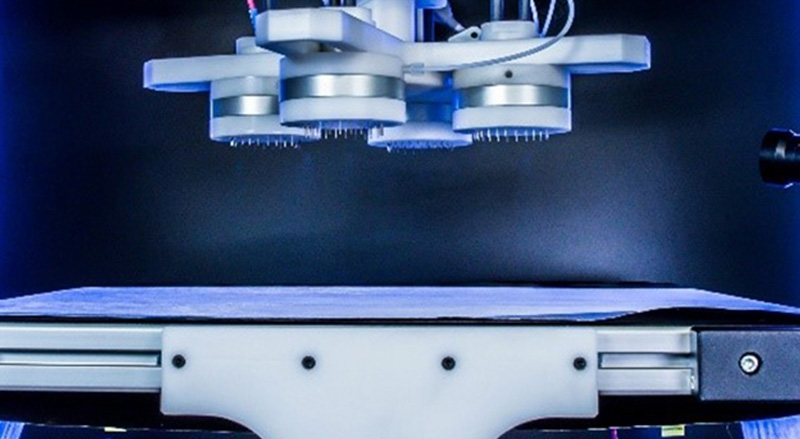Developing game-changing materials to enable transformative technological advancements
Our researchers partner with industry to unlock potential. Whether this is discovering game-changing materials like graphene, real-world applications with commercial impact, accelerating technology readiness, or boosting productivity and reducing carbon footprint in the foundation industries, we’re embracing opportunities, mitigating challenges and ensuring the UK’s reputation as a technology superpower.
We’re creating transformative interdisciplinary solutions to tackle some of the biggest global challenges. These include clean energy and net zero; climate action and clean water; good health and wellbeing; industry; innovation and infrastructure; and sustainable materials and responsible production.
With our partners we’re developing new materials, while making existing ones lighter, stronger, more sustainable and cheaper to produce, all to underpin sustainable and circular solutions to global challenges.
Our research covers
- The home of graphene research with more than 300 people working on 2D materials across 30 academic groups.
- Covering a broad range of research areas, from scalable routes towards graphene and related 2D materials, to energy and biomedical applications, and multifunctional composites for aerospace.
- Connected Institutes and Centres delivering semiconductor materials and device development for energy, photonics and quantum technologies.
- Internationally leading researchers delivering novel materials chemistry spanning biomaterials through to catalysts and bioanalytical spectroscopy.
- Developing advanced polymers and multi-functional composites as foundations for a sustainable future.
- Creating innovative textile materials, technologies and products, from biomedical devices to advanced composites for space technology.
- Supporting a sustainable future and circular economy through the development of high performance, durable and efficient construction products.
- Developing and improving the properties and performance of metals and alloys for demanding environments.
- Enhancing efficiency by increasing operational temperatures, enabling materials to withstand harsher environments and allowing for more accurate predictions of life span.
- Home to the largest community of metallurgists in the UK.
- Accelerating the discovery, manufacture and translation of new materials.
- Pioneering new therapies and diagnostic technologies in collaboration with partners worldwide, helping to speed up the translation to clinical trial.
- Bringing science and engineering together with humanities and social science to embed socio-economic and business perspectives into research.
- Delivering interdisciplinary research on sustainable business models and socio-technical transitions.
- Providing holistic expertise to support partners in considering real-world application when making impactful decisions.
Key research hubs and centres
Tomorrow Labs
Discover the cutting edge facilities where you can access the expertise and equipment you need to address your material innovation needs.
Events
-

Monthly Team Research Reading Group
27 May - 29 July 2025,
Last Tuesday of the month - Team Research Community Reading Group Fancy a break? Join our Community reading group! We meet monthly (last Tuesday of the month for 30 minutes at.. -

Training Course on Visualisation & quantification of tomographic datasets
18 - 19 September 2025,
A 2 day in person training course covering theory and computer-based practical works using the Thermo Scientific™ Amira-Avizo Software. Lab/synchrotron X-ray tomography has emer..
Connect with us
For business
- Leverage our expertise, facilities and network to develop solutions to your challenges.
- Gain access to some of the brightest minds working across our research pathways to help you make change happen.
Search our research database
- Use Research Explorer to access publications, activities and more.
- Search researcher profiles and connect with fellow experts.
For policy work
- Connect with our researchers to build relationships, explore areas of interest and enhance your understanding of pressing policy challenges.
- Access high quality policy articles and publications from our academics.
General enquiries
Speak to our research beacons team who can help connect you with the expert you're looking for.
Research at Manchester
Find out more about the breadth and depth of research at our University.








